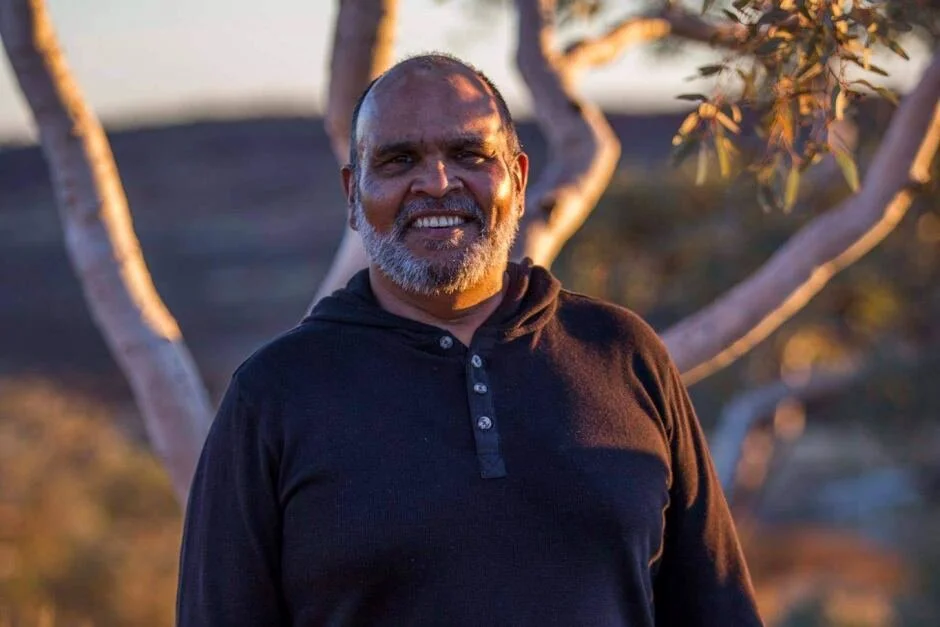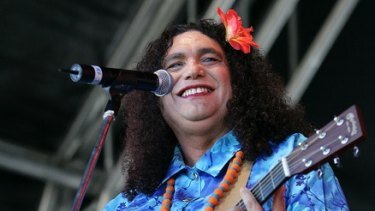Three Strong Aboriginal Men reflect on Men’s Health Week
For Men’s Health Week, we interviewed three strong Indigenous men from the Pilbara and Kimberley region who spoke about what this week means to them personally.
According to the Ten to Men longitudinal study on Men's Health, Aboriginal and Torres Strait Islander men in particular face a higher incidence of health issues including obesity and suicide, in comparison to the rest of the population.
We talked to Adrian Dodson-Shaw, Devon Cuimara, and Mary G over the course of Men’s Health Week.
Adrian Dodson-Shaw, Indigenous Marathon Runner and Assistant Director of ATSI Centre at the Australian Bureau of Statistics.
Yawuru man Adrian Dodson-Shaw is a marathon runner at the Indigenous marathon project and is the assistant director at the ATSI Centre at the Australian Bureau of Statistics
Through the Indigenous marathon foundation, he was able to participate in the New York City Marathon with 6 months of training.
Dodson-Shaw said being a role model to his children was a major factor in improving his health.
“It’s not so much about running, as much as it is about health.”
Dodson-Shaw said there is a growing openness to men talking about their health.
“I think mental health is just as important… You can’t look after others unless you’re looking after your own self”
Dodson-Shaw encourages men to seek support.
“ There’s no shame or stigma about it”
Dodson-Shaw is also the assistant director at the ATSI Centre of Aboriginal
Dodson-Shaw encourages both Indigenous men and women to participate in the upcoming census, due to take place later this year.
“Census is very important, especially in our communities. We need to collect the right numbers so they reflect the community”.
Devon Cuimara, CEO of Aboriginal Males Healing Centre
(Source: ABC)
Devon Cuimara is the founder and CEO of the Aboriginal Male’s Healing Centre, an organisation he started after seeing violence within his own family.
Cuimara uses an Indigenous approach to addressing family and domestic violence focusing on healing, culture, lore, and self-determination.
The AMHC focuses on taking men who use violence against women and children through a 12-month rehabilitation program to heal trauma.
Commenting on the initiative by the department of justice program to send prisoner’s to funerals for cultural obligation, Cuimara said this type of funding should be redirected.
“The government should be investing in justice reinvestment models that exist… We need to reduce the reliance on revolving door modalities. Yes, it’s accommodating, but what is its real aim at the end of the day, it’s a proven fact that incarceration doesn’t work. So that the time that they’re in there has a short impact but to understand first nations funeral there is a sorry time component before and after.
He said that the inmate does not get to participate in these important rituals to do with the funeral.
“It becomes a poignant and painful reminder to those families in attendance that funeral service that the discouraging disparities between Aboriginal people in incarceration and the rest of the community”.
Cuimara said that it would be better that more inmates need to heal their trauma’s.
“Most first nation men that are incarcerated don’t get the opportunity to access a trauma-informed service while incarcerated.
Mary G ( Mark Bin Barkar), Comedian, Radio Presenter, Stolen Generation CEO
(Source: The Sydney Morning Herald)
According to an article written in the International Journal for Equity in Health, Indigenous men have one of the lowest rates of health service utilisation in the whole of Australia.
They noted that shame was one of the contributing factors stopping Indigenous men from accessing healthcare in Australia.
Mary G says men tend to shy away from their own personal responsibility.
“Sometimes we need male doctors for our men because men get shame, especially our elder men”.
She highlights the need for people not to feel ashamed of getting check up’s for sexually transmitted diseases.
“One of the main things as a society we have to be aware of is sexually transmitted diseases… People just got to be conscious that they can do a lot of damage as well,
“Whatever it is, don’t feel ashamed to go to the doctors and get it checked out”.
If this article has raised any issues for you, please call or visit the resources below:
1800 RESPECT – 1800 737 732, https://www.1800respect.org.au/
Spartan First Suicide Prevention Crisis Line – 1800 370 747
Lifeline – 13 11 14,org.au




